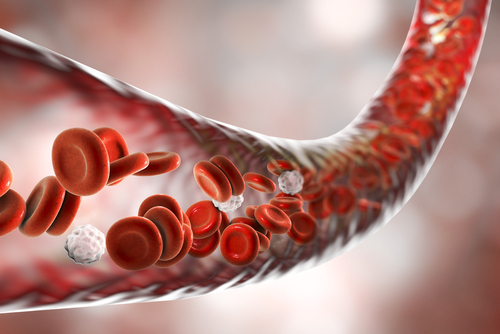Do you find, a couple of days after your cycle, that you begin to feel the clouds lifting? If your period is a dark time of endometriosis pain and incredibly low moods, perhaps you might notice a shift in perspective following it. Things begin to feel lighter, and the areas of your life that looked bleak during your period may begin looking like they have potential. Perhaps solutions to problems start coming to you that only a week ago you thought were hopeless to fix.
Recognize any of this? Welcome to your pre-menstrual phase, your inner spring.
Now, before I dive into the science, I want to both remind and reassure you that I know endometriosis warriors’ cycles can be all over the place. My friend just had a six-week period, and many of us find hormonal birth control completely throws our cycle.
Firstly, there are experts who believe you can still track your cycle even with certain contraceptives. This is not my area of expertise, so my advice would be to seek the support of a professional or download an e-course or book on tracking your cycle, as many of them cover this subject.
Secondly, with endometriosis and the effects it may have on some people’s cycles, this could be, of course, more difficult. However, tracking your cycle is about helping you to understand your personal pattern — it’s not about trying to squeeze your own cycle into a 28-day window. Remember, that number is just an average. So many people with periods experience longer and shorter time spans.
Tracking your cycle is actually about demystifying your cycle; it’s about recognizing your own body’s clues so it’s no longer confusing. I used to think my period was irregular and always early. As it turns out, it’s not. I used to think I was completely up and down one day to the next with my emotions; turns out, I feel optimistic during my pre-ovulation and lower in my pre-menstrual phase.
When you’re going through life without having an awareness of what’s going on in your body, it’s easy to feel out of control and at the mercy of your body’s biological whims. But actually understanding it enables you to have a better ability to predict and anticipate both your cycle and your symptoms of endometriosis.
So, back to your inner springtime. The pre-ovulation phase is the time after menstruation and the time when your body is preparing for ovulation. Your body will begin steadily, but slowly, rising in estrogen again, and as estrogen affects our happy hormones, you’ll also most likely experience an increase in these, too. This creates a knock-on effect: you have more energy, you’re more positive, you’re usually more confident and inspired, and your cognitive function is often improved, too.
However, this isn’t always the case. If you’re battling endo on a daily basis, and your winter phase felt like going into war, you could still find yourself feeling depleted as you move into pre-ovulation. But this is the beauty of tracking your cycle. As you start to notice these issues, you can begin to see what your body needs for you to flow with your cycle with more ease. (Of course, I don’t assume that it’ll always be easy when living with endometriosis.)
When looking purely at tracking your cycles, feeling depleted and burned-out during these other phases may indicate a need to slow down more and rest when possible during your pre-menstruation and menstruation phases. If doing this doesn’t seem to help at all, living with endometriosis could be causing you severe fatigue. So, it could be about looking into ways you could manage endometriosis differently.
Another possibility that’s been on my radar recently is adrenal fatigue. This can often occur as a result of chronic stress, which many people with endometriosis experience. Tracking your cycle can be a good indication of health issues such as these and areas where you may need to try a different approach to feel better.
If, however, you do notice you’re feeling a bit more positive and energetic in this stage, now is usually a good time for focusing at work and communicating with others. Estrogen and serotonin often help us feel more confident, so maybe this is the time to ask your boss about reducing your hours or having a work-from-home day. Whatever it is, your spring phase can be a great time for doing those things that endometriosis can often get in the way of, helping you take back control, and allowing you to work with your body, rather than against it.
***
Note: Endometriosis News is strictly a news and information website about the disease. It does not provide medical advice, diagnosis, or treatment. This content is not intended to be a substitute for professional medical advice, diagnosis, or treatment. Always seek the advice of your physician or other qualified health provider with any questions you may have regarding a medical condition. Never disregard professional medical advice or delay in seeking it because of something you have read on this website. The opinions expressed in this column are not those of Endometriosis News or its parent company, BioNews Services, and are intended to spark discussion about issues pertaining to endometriosis.


